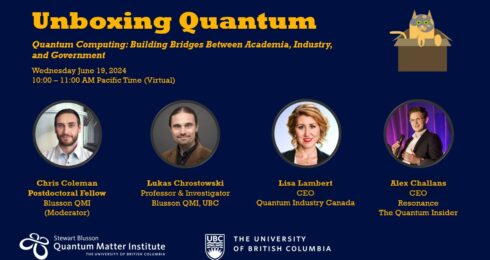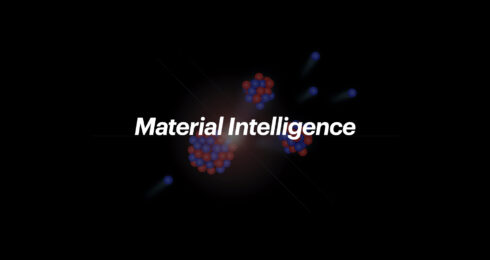British Columbia is uniquely positioned to leverage expertise in quantum science and technology to lead Canada in breakthrough innovation, and to train a highly skilled workforce to lead Canada’s emerging quantum industry. Recently, NSERC CREATE-funded programs Quantum BC and Quebec’s QSciTech partnered with CMC Microsystems to offer a first-of-its-kind workshop on the design, fabrication and testing of superconducting circuits like those used in quantum computing hardware.
The workshop, which ran from July 19 – 30, connected investigators and graduate students across Canada as they learned to use models to predict behavior of superconducting devices and circuits, design those devices and circuits, translate them to a foundry-compatible process, and devise and execute low-temperature experiments for superconducting circuits and devices.
“This is first workshop in the world to put these together, giving access to education and know-how that would normally only be available to members of very well-funded research teams,” said Assistant Professor Joseph Salfi, one of the three organizers together with Prof. Rogério de Sousa (University of Victoria) and Prof. Yves Bérubé-Lauzière (Université de Sherbrooke), who leads several quantum computing-focused sessions as part of the overall workshop. “The true value of this workshop is that it is exposing many more people to this set of learning outcomes, positioning these students to be successful in the thriving local ecosystem and beyond.”
The workshop covered the fundamentals of superconductors and Josephson junctions, and how to design circuits such as resonators, Superconducting Quantum Interference Device (SQUIDs), analog to digital converters and qubits. Students met with researchers and engineers at leading Canadian universities and industry to pitch their device ideas, and used IBM Qiskit Metal software and CMC-provided design tools to submit devices for fabrication by a foundry facilitated by CMC. Participants who have access to a low-temperature laboratory will be able to test their chips at their home institution. The Quantum FabLab at Institut Quantique of Université de Sherbrooke will provide access to dilution fridges for participants who would not, otherwise, have access to such equipment. Dilution fridges allow experiments at temperatures as low as 15 milliKelvin, enabling the demonstration of state of the art quantum devices.
The final day of the workshop offered the participants a chance to share their team’s efforts in presentations to the group. The winning team included Jacinta May (University of Sydney, Australia), Gideon Uchehara (UBC), Sudhang Varshney (UBC), Elham Torabian (UBC). Congratulations to the winning team and to all of the participants. The instructors were very impressed with how all the participants took the workshop’s primary learning outcomes and used their creativity and teamwork to create something new.
For Ana Ciocoiu (PI: Joseph Salfi), CREATE scholar and QuEST award recipient, the course is an opportunity to gain first-hand experience in both theoretical and practical applications.
“I’m very excited to have taken part in this novel workshop, which combined theory with hands-on experience through fabrication and testing of superconducting devices,” said Ciocoiu. “The ability to actually implement and test our design in state-of-the-art research facilities provides an amazing learning opportunity.”
According to Gerri Sinclair, BC’s Innovation Commissioner, who delivered opening remarks this week, smart investors are viewing quantum technologies through an optimistic lens.
“British Columbia has invested more than $40 million in quantum computing efforts,” Sinclair said. “Thanks to these efforts, BC and the Pacific Northwest are increasingly viewed as leaders in quantum tech. I am very pleased to see BC capitalizing on the promise of federal and provincial investment.”
“BC can—and should—make positive contributions to commercialization by demonstrating quantum solutions to real-world problems,” she said.
For more information about training opportunities supported by Quantum BC, visit quantum-bc.ca. For information on the QSciTech-QuantumBC Virtual Workshop: Superconducting Circuits and Qubits, visit www.cmc.ca/qscitech-quantumbc-workshop-jul-2021.
About NSERC CREATE
The NSERC Collaborative Research and Training Experience (CREATE) program supports the training and mentoring of teams of highly qualified students and postdoctoral fellows from Canada and abroad through the development of innovative training programs that encourage collaborative and integrative approaches, and address significant scientific challenges associated with Canada’s research priorities facilitate the transition of new researchers from trainees to productive employees in the Canadian workforce. www.nserc-crsng.gc.ca
About CMC Microsystems
CMC Microsystems is a not-for-profit organization managing Canada’s National Design Network®. CMC reduces barriers to technology adoption by creating and sharing platform technologies. www.cmc.ca


